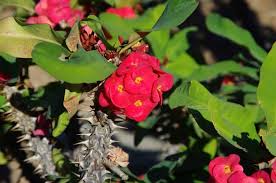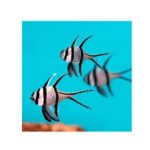
Herbal teas have been a staple in various cultures for centuries, celebrated for their medicinal properties, soothing qualities, and health benefits. In Traditional Chinese Medicine (TCM) and Feng Shui, herbal teas hold a special place as they are believed to enhance both physical and emotional well-being. The art of balancing the body’s energy, or Qi, through herbal remedies, including teas, is closely aligned with the ancient practices of Feng Shui, which seeks harmony and balance in all aspects of life.
In this article, we explore how using herbal teas can be beneficial to your health and well-being, not only from a medicinal standpoint but also in terms of their role in Feng Shui practices. We will delve into specific herbal teas that align with Feng Shui principles, how they work to maintain balance, and how their consumption can enhance your physical, mental, and emotional health by harmonizing your internal energy with the natural forces around you.
1. Understanding the Connection Between Herbal Teas and Feng Shui
Feng Shui, an ancient Chinese practice of creating balance and harmony in one’s environment, revolves around the flow of Qi, or life energy. Just as Feng Shui aims to optimize the energy flow in living spaces to promote prosperity, health, and happiness, it also emphasizes the importance of balancing the body’s internal energy. The flow of Qi within the body is just as crucial as the energy that circulates in the home or workspace.
Herbal teas, in the context of Feng Shui, are not merely drinks but are regarded as ways to nurture the body, mind, and spirit. They are believed to enhance the body’s energy, clear blockages, and provide nourishment, which in turn harmonizes the individual with their environment. This interconnectedness between the body and the environment is the essence of Feng Shui, and herbal teas are seen as powerful tools to restore and maintain balance.
Many herbal teas, as per TCM, are designed to target specific organs, improve circulation, boost the immune system, and promote relaxation. These physical benefits, combined with the spiritual principles of Feng Shui, offer a holistic approach to well-being. By integrating herbal teas into your routine, you can cultivate a balanced life both internally and externally.
2. The Role of Herbal Teas in Feng Shui for Health and Well-being
Feng Shui is not just about the physical arrangement of objects in a space; it’s about how these objects interact with the energies that flow within. Similarly, the food and beverages you consume, including herbal teas, are seen as crucial elements in the flow of energy within the body. In Feng Shui, it is believed that the right herbs can support your health, enhance your energy, and even attract positive influences into your life.
A. Balancing the Five Elements in Feng Shui
In Feng Shui, the Five Elements—Wood, Fire, Earth, Metal, and Water—play a crucial role in maintaining harmony. Each of these elements corresponds to different aspects of life, including health, wealth, relationships, and personal growth. Many herbs used in teas are believed to correspond with one or more of these elements, and drinking specific teas can help balance these elements within your body.
For example:
- Wood Element: Herbs that promote growth, vitality, and detoxification, such as mint and green tea, support the Wood element.
- Fire Element: Warming teas like ginger or cinnamon tea correspond to the Fire element, which is associated with passion, energy, and motivation.
- Earth Element: Teas such as chamomile or licorice root tea, which are grounding and soothing, relate to the Earth element.
- Metal Element: Herbal teas that promote clarity, like chrysanthemum tea, correspond to the Metal element, which represents clarity, focus, and precision.
- Water Element: Cooling and hydrating teas like peppermint or lemon balm tea support the Water element, which governs the flow of energy, intuition, and communication.
By choosing herbal teas that correspond to the elements that need balancing in your life, you can create harmony within both your body and your environment.
B. Qi (Chi) and Herbal Teas
In Traditional Chinese Medicine (TCM), Qi is the vital life force that flows through the body. When Qi is balanced and flowing freely, a person feels healthy, energized, and harmonious. However, when Qi is blocked or stagnant, it can result in physical or emotional discomfort, illness, or stress. Many herbal teas work to either promote the flow of Qi or clear blockages that may be affecting the body’s natural energy flow.
For instance, peppermint tea is often used to clear Qi stagnation in the digestive system, while ginger tea is known to warm the body and stimulate the circulation of Qi, helping to alleviate cold-related conditions.
In Feng Shui, the idea is that a balanced flow of Qi leads to greater health, happiness, and success. By incorporating herbal teas into your daily routine, you can support this flow of Qi and harmonize your internal energies with the external world.
3. Popular Herbal Teas and Their Health Benefits in Feng Shui
Let’s explore some of the most popular herbal teas and how they can be used to promote health and well-being in accordance with Feng Shui principles.
A. Green Tea: Cleansing and Rejuvenating
Green tea is one of the most popular herbal teas, known for its rich antioxidants and detoxifying properties. In TCM, green tea is considered to have cooling properties, which help to clear heat from the body and promote relaxation. It’s often used to cleanse the body of toxins, improve digestion, and boost mental clarity.
From a Feng Shui perspective, green tea is associated with the Wood element, which represents growth, vitality, and renewal. Drinking green tea is said to enhance these qualities, making it an ideal choice for individuals seeking to stimulate personal growth, focus, and creativity. It’s also thought to improve the flow of Qi in the body, helping to promote balance and energy.
B. Ginger Tea: Warming and Energizing
Ginger tea is widely known for its warming and energizing effects. It is commonly used to improve digestion, alleviate nausea, and stimulate circulation. Ginger tea’s warmth helps to balance the Fire element, which governs energy, motivation, and passion in Feng Shui.
When consumed regularly, ginger tea can invigorate the body, energize the mind, and stimulate the flow of Qi. It’s a great tea for those who need a boost in motivation or are experiencing stagnation or fatigue. Additionally, its warming properties are beneficial during the colder months, supporting circulation and warming the body from the inside out.
C. Chamomile Tea: Calming and Grounding
Chamomile tea is known for its calming and soothing effects, making it an excellent choice for stress relief, relaxation, and better sleep. It’s a gentle herbal remedy that can help ease anxiety, promote relaxation, and calm the nervous system. Chamomile tea is also associated with the Earth element in Feng Shui, which represents stability, nurturing, and grounding.
Drinking chamomile tea can help ground your energy, calm your mind, and promote emotional well-being. It’s particularly beneficial for individuals who feel anxious, overwhelmed, or out of balance. In Feng Shui, chamomile’s grounding energy helps to create a sense of stability and tranquility in your life.
D. Peppermint Tea: Refreshing and Invigorating
Peppermint tea is a refreshing and invigorating tea that is commonly used to soothe digestive issues, relieve headaches, and refresh the mind. In TCM, peppermint is considered to have cooling properties that help to clear heat and relieve stagnation in the body. Peppermint tea is also associated with the Water element in Feng Shui, which represents flow, communication, and intuition.
Drinking peppermint tea can help clear mental fog, promote clarity, and enhance focus. It’s a perfect tea for anyone who needs to refresh their energy or needs to stay mentally sharp. In Feng Shui, peppermint tea is thought to help improve communication and create a balanced flow of energy in the body and the home.
E. Lemon Balm Tea: Relaxing and Uplifting
Lemon balm tea is known for its ability to reduce stress and anxiety, improve mood, and promote restful sleep. It has a mild, refreshing flavor and is commonly used in TCM to calm the mind and balance the emotions. Lemon balm tea corresponds to the Metal element in Feng Shui, which governs clarity, focus, and mental clarity.
Drinking lemon balm tea can help create a sense of calm and peace, which is essential for those who are feeling stressed or overwhelmed. It helps to clear the mind, reduce tension, and uplift the spirit, making it an excellent choice for balancing emotional energy.
4. How to Incorporate Herbal Teas into Your Feng Shui Practice
To fully benefit from the positive effects of herbal teas according to Feng Shui, consider these practical tips for incorporating them into your routine:
A. Create a Ritual
Drinking herbal tea can be more than just a beverage—it can become a calming ritual that helps you connect with the present moment and harmonize your energy. Create a peaceful and calming environment where you can sit and enjoy your tea, such as a quiet corner of your home or a space that reflects tranquility and balance.
B. Pair Teas with Your Home’s Feng Shui
Align your tea choices with the Feng Shui elements of your home or specific areas where you seek balance. For example, if you want to improve your career or creativity, drink green tea in the East or Southeast area of your home (associated with Wood). If you’re seeking calmness and emotional balance, chamomile tea in the center of your home (Earth) can help.
C. Mindfully Sip Your Tea
As you drink your herbal tea, focus on the warmth, aroma, and taste of the tea. Use this time to clear your mind,
relax, and focus on the present moment. This mindful practice can help align your internal Qi with the environment around you.
Conclusion
Herbal teas have a powerful connection to both health and Feng Shui practices. By understanding the role of herbal teas in balancing the Five Elements, promoting the flow of Qi, and nurturing both physical and emotional well-being, you can integrate these teas into your daily routine to create a more harmonious life. Whether you’re seeking relaxation, energy, clarity, or emotional balance, the right herbal tea can help you achieve that balance, supporting your health and prosperity in both mind and body. By embracing herbal teas within your Feng Shui practice, you can create a stronger connection to nature, health, and vitality.









